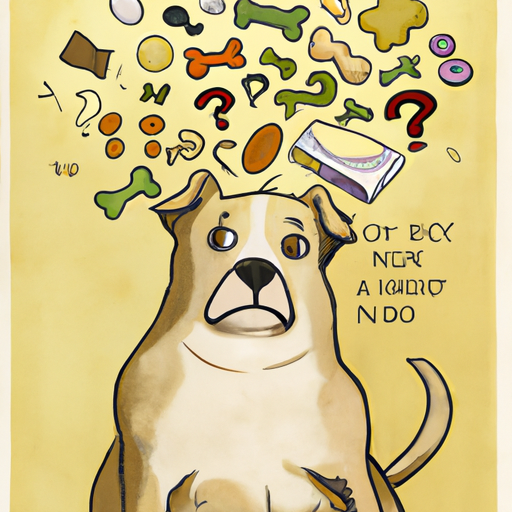If you’re a dog owner, you’ve probably experienced the discomforting scenario of your furry friend passing wind. It can be embarrassing, especially when you have guests over, but more importantly, it could indicate an underlying health issue. This article will delve into the reasons why dogs get gassy and provide practical advice on how to manage this condition.
Table of Contents
- Diet and Dog Gas
- Health Conditions and Dog Gas
- Age and Dog Gas
- How to Reduce Gas in Dogs
- Frequently Asked Questions
Key Takeaways
- Dogs get gassy due to various reasons, including diet, certain health conditions, and age.
- Certain foods are more likely to cause gas in dogs than others.
- A sudden increase in gas could indicate a health problem.
- There are several ways to reduce gas in dogs, such as changing their diet and providing regular exercise.
Diet and Dog Gas
Your dog’s diet plays a significant role in its digestive health. Certain foods are more likely to cause gas than others. For instance, foods high in fiber or fat can cause gas in dogs. You may notice your dog being gassy after consuming beans, peas, or dairy products. These foods are not easily digested by dogs and can lead to bloating and gas.
It’s also worth noting that a sudden change in diet can disrupt your dog’s digestive system. If you’ve recently switched your dog’s food, you may notice an increase in gas. Furthermore, certain types of dog food can cause more gas than others. You may want to consider switching to a highly digestible diet for your dog. Here‘s a useful guide on choosing the right dog food.
Health Conditions and Dog Gas
Certain health conditions can cause your dog to be more gassy. For example, gastrointestinal diseases can lead to an increase in gas. If your dog is suddenly passing more gas than usual, it’s worth having them checked by a vet. You can read more about common dog health issues on this page.
Age and Dog Gas
Just like humans, dogs’ digestive systems can become less efficient as they age, leading to increased gas production. Older dogs are more prone to developing conditions like irritable bowel syndrome or gastrointestinal diseases, both of which can cause gas. You can find more information about caring for older dogs here.
How to Reduce Gas in Dogs
There are several steps you can take to reduce gas in your dog. Here are a few suggestions:
- Change their diet: As mentioned above, certain foods can cause gas. Try switching to a more digestible diet.
- Regular exercise: Regular exercise can help stimulate your dog’s digestive system and reduce gas.
- Slow down their eating: Dogs that eat quickly tend to swallow more air, which can lead to gas. Consider using a slow-feeder bowl.
By making these changes, you can help your dog feel more comfortable and reduce the occurrence of gas. For more tips on managing your dog’s health, check out this article.
Frequently Asked Questions
Q: Why is my dog suddenly more gassy?
A: A sudden increase in gas could be due to a change in diet or a health issue. If your dog is experiencing other symptoms like vomiting or diarrhea, it’s best to consult a vet.
Q: Are certain breeds more prone to gas?
A: Yes, some breeds are more prone to gas, including Boxers, Bulldogs, and Pugs. This is often due to their short snouts, which can cause them to swallow more air when eating.
Q: Can I give my dog over-the-counter gas relief medication?
A: It’s best to consult a vet before giving your dog any medication. They can provide appropriate advice based on your dog’s specific needs.
In conclusion, while dog gas can be embarrassing, it’s a common issue faced by many pet owners. Understanding the causes can help you manage the situation effectively and ensure your dog’s comfort and health.



